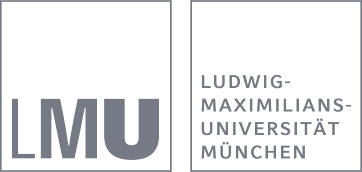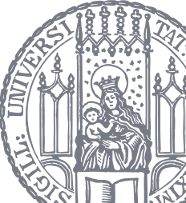| Coordinates | Wednesdays from 10 (sine tempore!) to 12 PM in room 021 of Ludwigstrasse 31. |
| Lecturer | Tom Sterkenburg. Contact me at tom.sterkenburg lmu.de; visit me in room 126 of Ludwigstrasse 31. lmu.de; visit me in room 126 of Ludwigstrasse 31. |
| Course description | Pragmatism is a major tradition in philosophy, that can be set apart from the analytical and the continental traditions in its emphasis on the practical understanding, uses, and consequences of philosophical ideas and notions. Pragmatist epistemology, in particular, substitutes the traditional concern with the static notion of knowledge and its justification for an analysis of the norms governing knowledge-seeking inquiry. In this course we will study classic texts in the pragmatist tradition, with special attention for the contrasts and meeting points between pragmatic and analytic epistemology. |
| Contents and material | We will read a number of classic texts in the pragmatist tradition. See the below schedule for details. (This schedule is provisionary; depending on participants' interests, we might make some changes as the course progresses.) |
| Assessment | The course is worth 9 ECTS. Your grade will be determined by a term paper at the end of the course. The term paper treats of a theme we have discussed in the course, and has a length of about 5000-6000 words. In addition, everyone who is taking the course for credits will be required to give a brief presentation about the readings in one of the meetings. Finally, you are required to submit at least two questions for discussion by noon of the day prior to each lecture. A discussion question ideally comes in the form of indicating some aspect of the text that you find problematic, implausible, and/or confusing; and a brief motivation why you think so. |
Schedule
| Date | Topic | Material | Assignment |
|---|---|---|---|
| Wed Oct 16 | Introduction. | Background: SEP entry on Pragmatism. | |
| Wed Oct 23 | Peirce. | "The fixation of belief"; "The scientific attitude and fallibilism". | |
| Wed Oct 30 | Peirce. | "How to make our ideas clear"; "What pragmatism is". | |
| Wed Nov 6 | James. | "Philosophical conceptions and practical results"; "The will to believe". | |
| Wed Nov 13 | James. | "What pragmatism means"; "Pragmatism's conception of truth". | |
| Wed Nov 20 | Schiller. | "The definition of pragmatism and humanism"; "The making of truth". | |
| Wed Nov 27 | Dewey. | "Escape from peril" (The Quest for Certainty); "Common sense and scientific inquiry". | |
| Wed Dec 4 | NO CLASS. | ||
| Wed Dec 11 | Lewis. | "A pragmatist conception of the a priori"; "Logical positivism and pragmatism". | |
| Wed Dec 18 | Ramsey. | "Truth and probability." | |
| CHRISTMAS BREAK. | |||
| Wed Jan 08 | Quine. | "Two dogmas of empiricism"; Godfrey-Smith: "Quine and pragmatism." | |
| Wed Jan 15 | Putnam. | "Is there still anything to say about reality and truth?" (The Many Faces of Realism); Cormier: "What is the use of calling Putnam a pragmatist?", with reply by Putnam. | |
| Wed Jan 22 | Davidson; Goodman. | Davidson: "On the very idea of a conceptual scheme"; Goodman: "Words, works, worlds." | |
| Wed Jan 29 | Rorty. | Rorty: "Universality and truth"; Haack: "«We pragmatists»; Peirce and Rorty in conversation." | |
| Mon Mar 30 | Deadline term paper. |
Material
- Cormier. "What is the use of calling Putnam a pragmatist?", with reply by Putnam. In Auxier, Anderson, and Hahn (eds.), The Philosophy of Hilary Putnam, 2015.
- Davidson. "On the very idea of a conceptual scheme." Proc. Addr. Am. Philos. Assn., 1973.
- Dewey. "Escape from peril." In The Quest for Certainty, 1929.
- Dewey. "Common sense and scientific inquiry." In Logic, the Theory of Inquiry, 1938.
- Godfrey-Smith. "Quine and pragmatism." In Harman and Lepore, A Companion to W.V.O. Quine, Blackwell, 2014.
- Goodman. "Words, works, worlds." Erkenntnis, 1975.
- Haack. "«We pragmatists»; Peirce and Rorty in conversation." Agora, 1996.
- James. "The will to believe." Address to the Philosophical Clubs of Yale and Brown Universities, 1896.
- James. "Philosophical conceptions and practical results." Address to the Philosophical Union at Berkeley, 1898.
- James. "What pragmatism means." In Pragmatism: A New Name for Some Old Ways of Thinking, 1907.
- James. "Pragmatism's conception of truth." In Pragmatism: A New Name for Some Old Ways of Thinking, 1907.
- Lewis. "A pragmatic conception of the a priori." J. Phil., 1923.
- Lewis. "Logical positivism and pragmatism." (Completed in 1941.) In Coheen and Mothershead, Collected Papers of Clarence Irving Lewis, 1970.
- Peirce. "The fixation of belief." Pop. Sci. Mon., 1877.
- Peirce. "How to make our ideas clear." Pop. Sci. Mon., 1878.
- Peirce. "The scientific attitude and fallibilism." (Notes from 1887-89.) In Buchler, Philosophical Writings of Peirce, 1940.
- Peirce. "What pragmatism is." Monist, 1905.
- Putnam. "Is there still anything to say about reality and truth?" From chapter 1 of The Many Faces of Realism, 1987. In Haack (ed.), Pragmatism, Old & New: Selected Writings, 2005.
- Rorty. "Universality and truth." From Brandom (ed.) Rorty and His Critics, 2000.
- Quine. "Two dogmas of empiricism." Philos. Rev., 1951.
- Ramsey. "Truth and probability." (1926.) In Braithwaite (ed.) Foundations of Mathematics and Other Logical Essays, 1931.
- Schiller. "The definition of pragmatism and humanism." In Studies in Humanism, 1907.
- Schiller. "The making of truth." In Studies in Humanism, 1907.
Further reading
- Haack (ed.). Pragmatism, Old & New: Selected Writings, Amherst: Prometheus, 2005.
- Malachowski (ed.). The Cambridge Companion to Pragmatism. Cambridge University Press, 2013.
- Misak. The American Pragmatists. Oxford University Press, 2013.
- Murphy. Pragmatism: From Peirce to Davidson. Boulder: Westview Press, 1990.
- Shook and Margolis (eds.). A Companion to Pragmatism. Oxford: Blackwell, 2006.

